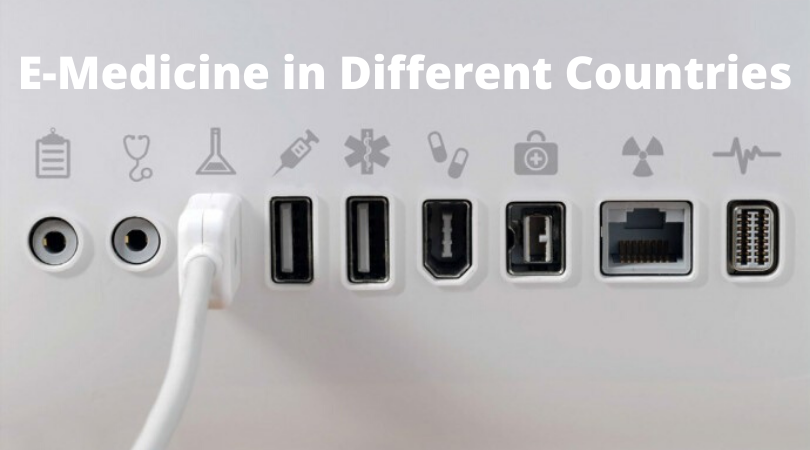Countries that already use a unified system of electronic medical records (EMR) are Austria, France, Israel, Japan, Singapore, Estonia, Finland, Slovakia, Spain, Sweden. Partially (not throughout) EMR operates in the UK in public healthcare institutions.
EMR systems consist of elements that are responsible for data protection, access to information by doctors, the development of a common database of terms and common standards.
The telemedicine services market is most developed in the United States. Accordingly, the introduction of such systems in the country’s medicine is proceeding at an accelerated pace compared to the rest of the world. According to a study by Grand View Research, the global market for electronic medical records (EMR) back in 2016 amounted to 23 billion, and by 2025 it would grow to 33 billion. Most of this amount was concentrated in the USA, where such a largest share of the market for EMR systems companies like Epic (26.7%), Cerner (24.8%), Meditech (17%) and Centricity Practice Solution (10.3%) are located.
At the same time, the US Department of Health and Human Services and the National Institute of Standards and Technology are involved in the development, support and standardization of digital medicine projects. Brazil, India, Russia and Asia are actively developing in this direction.
Electronic medical records as an alternative to paper
Thanks to electronic medical records, it has become possible to store information about the patient, keep a complete medical history, save data on prescriptions and medications, organize and analyze available information. Both the patient and the doctor to whom he is referring have access to the cards.
Such cards may contain a complete history of a person’s visits to various medical institutions, test and vaccination forms, data on allergies and all diseases. This allows doctors in medical institutions to quickly receive full information about a person and more accurately prescribe treatment, as well as significantly reduce the amount of paper work.
Electronic medical records (EMR) have a number of significant advantages for both doctors and their patients. Due to the fact that the bureaucracy is reduced, the time for collecting information about a person is also reduced, the patient receives treatment faster. In addition, the overall level of medical services is increasing.
Benefits
- Patient status data is stored in a safe place – a secure cloud storage. Thus, complete information about all diseases and features cannot be lost and is available in any hospital.
- The card contains a story about changes in the patient’s body over a lifetime. Such complete information in quick access will help doctors conduct analytics and make more accurate diagnoses.
- Systematic information, which is stored not in paper form, but in digital, allows medical organizations to carry out effective research.
- Records allow you to implement separate programs to monitor the quality of healthcare in the country.
- The ability to add digitized data from paper records to the database allows you to make more accurate forecasts based on a large amount of data.
